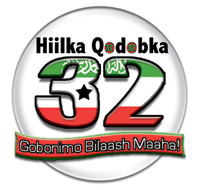Somalilandlaw.com EDITORIAL 7/01/2008
The Somaliland Government has recently sent to the House of Representatives a new Bill on press and publications. The provisions of this bill (based almost entirely on the Yemen Law No: 25 of 1990 on the Press & Publications) run contrary to international norms relating to freedom of expression and the independence of the press and are not in line with the Somaliland constitution.
The considerable powers given to the Minister of Information (and other ministers) include even deciding on appeals from anyone whose writings have been turned down for publication by a newspaper’s editor (Article 46). These ministerial powers over the press and publishers/printers/distributors etc, the compulsory registration of all press and publication activities, including the practice of the profession of journalism, and the extensive criminal sanctions which add to the existing array of criminal offences in the 1962 Somali Penal Code contrast sharply with the current Somaliland Press Law (2004), which contains no criminal sanctions and is based on codes of conduct. Unfortunately the Somaliland Government has repeatedly made clear its dissatisfaction with the current press Law and has used the Penal Code and extra-judicial powers to detain and imprison journalists. It is no surprise, therefore, that the Somaliland Government is not putting forward amendments of the current Press Law, but is now proposing its wholesale replacement by this new Bill which introduces considerable criminal sanctions, such as fines and imprisonment (Article 99) for the infringement of its numerous provisions, as well as prohibition of continued practice of journalism or publication or even circulation of printed materials; confiscation of property, including printing presses (Article 101) and seizure of printed materials (Article 102).
In a well publicized recent interview (on VOA, Somali Service, on 26/12/2007), President Rayaale denied that there is any “proper law” currently dealing with the Press and described the Press Law (which he signed into Law in 2004) as one “written by them (?) And which is in conflict with the constitution and the laws”. He added that if a law does not include punishment or criminal sanctions (ciqaab), “it cannot be law” and opined that a “law is one which lays down punishment”. Referring to this new Bill that the Government has now sent to the parliament, he said they borrowed it “from the developed world” and added that one should follow the example of “what works in advanced countries”.
This disapproval of the current Press Law was underlined by the Supreme Court’s ruling last year which, incorrectly, in our view, described the law as subordinate “regulations” (xeer-nidaamiye). Without considering whether some of the old criminal sanctions in the 1962 Penal Code survived the provisions of the Somaliland Constitution or the Press Law, the Court upheld the convictions of journalists for, among other Penal Code offences, the crime of insulting the President and blaming him for the actions of his government (Article 220 – a replica of Articles 278 & 279 of the 1930 Italian Penal Code).
There is nothing wrong with borrowing laws that work, but, in this area of freedom of the press, the Somaliland Government’s choice of countries to emulate has not led it to turn to places that can be considered as models of good practice. The bill which pre-dated the 2004 Somaliland Press Law was initially based, word for word, on the Ethiopian Press Proclamation No. 34/1992, which had been very widely criticized. And now, despite public statements by the Government that this new Bill was proposed by experts in media law, it is, in reality, a wholesale re-production of the 1990 Yemeni Law, with amendments which increased the criminal sanctions. It has been reported that even Yemen is considering repealing this law, and organizations, like Article 19, have already criticized the provisions of the Yemeni law.
Somalilandlaw.com urges the House of Representatives to reject this Bill completely. Somaliandlaw.com recommends, instead, that:
- improvements of the current Press Law be made, in consultation with the media and the civil society;
- the self regulation of the press be strengthened;
- a modern civil law dealing with issues of libel be adopted;
- all the numerous criminal sanctions in the (1930s based) Somali Penal Code affecting the press be repealed;
- registration of press activities beyond that which is necessary for all businesses be abolished;
- separate broadcasting laws, including one which will make publicly owned broadcasting independent of the government be introduced; and
- Measures to entrench freedom of information and expression should be introduced.
The various issues in the Bill relating to publications, in general, copyright and the National Library are better dealt with in a more modern and less restrictive separate law(s).
Ibrahim Hashi Jama
07/01/2008
English Language translation of the Somaliland Press & Publications Bill
http://somalilandtimes.net/sl/2008/312/050.shtml

 Freedom Of Press
Freedom Of Press 

